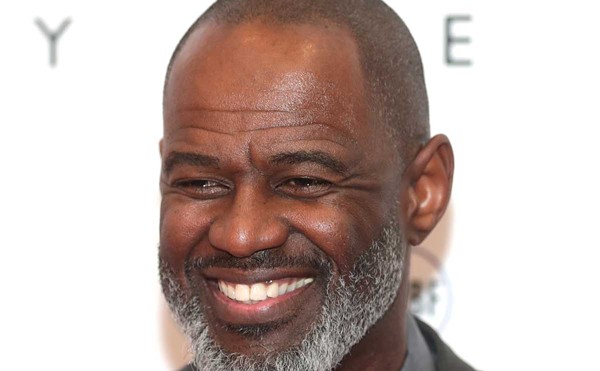Editor’s note: The following is a collection of observations regarding the terrorist attacks of Sept. 11 and their aftermath. We’ll continue this feature from time to time in the weeks and months to come.
We were eager to see how Christopher Hitchens responded to the Sept. 11 attacks. Although widely regarded as a leading progressive, Hitchens is anything but predictable, not to mention irreverent (this is, after all, the guy who wrote a book highly critical of Mother Teresa called The Missionary Position). And he didn’t disappoint. In a pair of columns for the Nation (www.thenation.com), Hitchens came out swinging, delivering uppercuts to lefty icons Noam Chomsky and Howard Zinn (among others) for trying to “rationalize” the terrorist actions that left a trail of some 6,500 bodies in their wake.
Hitchens didn’t shrink from the fact that the United States is guilty of plenty of atrocities — along with Mother Teresa, he’s also taken on Henry Kissinger, arguing that the secretary of state under Richard Nixon should be prosecuted as a war criminal for a string of actions. He’s also claimed that Bill Clinton was guilty of a war crime when he ordered a missile attack on Khartoum after the 1998 embassy bombings — but contends that our past sins don’t explain why at least 19 people would board planes for suicide missions designed to kill thousands of innocent civilians.
Writes Hitchens: “The people of Gaza live under curfew and humiliation and expropriation. This is notorious. Very well: Does anyone suppose that an Israeli withdrawal from Gaza would have forestalled the slaughter in Manhattan? It would take a moral cretin to suggest anything of the sort; the cadres of the new jihad make it very apparent that their quarrel is with Judaism and secularism on principle, not with (or not just with) Zionism. They regard the Saudi regime not as the extreme authoritarian theocracy that it is, but as something too soft and lenient.
“(T)he bombers of Manhattan represent fascism with an Islamic face, and there’s no point in any euphemism about it. What they abominate about ‘the West,’ to put it in a phrase, is not what Western liberals don’t like and can’t defend about their own system, but what they do like about it and must defend: its emancipated women, its scientific inquiry, its separation of religion from the state. Loose talk about chickens coming home to roost is the moral equivalent of the hateful garbage emitted by Falwell and Robertson, and exhibits about the same intellectual content.”
But in a world where things are rarely black and white, this issue is even more muddled than most. As a group of leading Muslim clerics pointed out on the program “60 Minutes” on Sunday evening, a case can be made that U.S. foreign policy, although not directly culpable, cannot be ignored as a contributing factor that has helped fuel such intense hatred and fanaticism.
No one (at least no one we’ve seen) is saying that the people responsible for last month’s massacre should not be brought to justice. But does that fact preclude asking, amid all the flag-waving, whether there should be some serious national introspection as well?
* * *
How the United States reacts to these attacks is going to send a message to the world. The question is, what do we as a people want that message to be?
Here’s one point of view:
“Declaring an unlimited war on an ill-defined enemy is going to produce neither justice nor peace,” said Rahul Mahajan, a board member of the group Peace Action. “Rather than promising a war to end all wars, President Bush seems to be promising perpetual war. The refusal to negotiate or provide evidence violates international law, especially since the administration is claiming the right to engage in actions that will result in civilian deaths. Indeed, civilians are likely already dying in Afghanistan as a result of U.S. threats. This approach has already destabilized Pakistan, with a real danger of political collapse. Though the effects have been less severe in India, there is a resurgence of religious hatred within the country and saber-rattling across the border. Since both states have nuclear arms, the potential effects are incalculable, especially given the volatility in Kashmir. The only wise and legitimate course is for the United States to submit its evidence to a competent body like the International Court of Justice at The Hague.”
* * *
At times like these, taking a view contrary to the prevailing public opinion can be risky business. Just ask the former editors of two small newspapers — one in Oregon, one in Texas — who were fired after writing columns critical of George W. Bush’s handling of this crisis. Then there’s our colleague David Rolland, editor of the alternative Ventura County Reporter in California, who reported getting death threats after publishing a column “critical of Bush’s ‘good vs. evil’ rhetoric in the first few days after the attacks.”
“I didn’t expect the backlash to be this chilling,” Rolland told us.
Or, consider the case of Bill Maher, host of the ABC talk show “Politically Incorrect,” who had the temerity to suggest that A) anyone willing to sacrifice their lives in a suicide mission, no matter how misguided, could not be considered a coward and B) the U.S. habit of hurling cruise missiles at our enemies wasn’t exactly heroic.
White House spokesperson Ari Fleischer responded by saying: “There are reminders to all Americans that they need to watch what they say, watch what they do, and this is not a time for remarks like that; there never is.”
According to the Web site Jim Romenesko’s MediaNews (www.poynter.org/medianews/), that observation somehow didn’t make it into the official White House transcript of the session in which it was made. A spokesperson for Fleischer blamed the omission on a “clerical error.”
In the aftermath, Maher has both lost advertisers and done some backtracking.
This column was edited by Curt Guyette. Send comments to [email protected]




